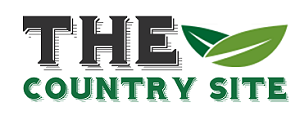The Essential Features of Property Management Software for Single Family Rentals
Managing single family rental properties can be a complex and time-consuming endeavor. Property managers and landlords must handle everything from tenant screening and rent collection to maintenance coordination and financial reporting. To streamline these responsibilities, property management software for single family homes designed specifically for single family rentals has become an invaluable tool. Choosing the right software with essential features can significantly enhance operational efficiency, improve tenant satisfaction, and support portfolio growth.
Automated Rent Collection and Payment Processing
One of the core functionalities in property management software is the ability to automate rent collection. This feature simplifies the payment process for both landlords and tenants by enabling online rent payments through secure portals. Automated reminders reduce late payments and improve cash flow consistency, eliminating the need for manual tracking. Additionally, integration with various payment methods such as credit cards, bank transfers, and e-checks makes it convenient for tenants to pay on time.
Tenant Screening and Lease Management
Effective tenant screening is critical for maintaining the quality of single family rental properties. Modern property management platforms often include integrated screening tools that allow landlords to verify credit scores, background checks, and rental history before approving applicants. This reduces the risk of problematic tenants and potential evictions. Furthermore, lease management features help streamline the entire lease lifecycle—from digital lease creation and e-signatures to renewal tracking—ensuring compliance and reducing paperwork.
Maintenance Tracking and Request Management
Property upkeep is vital for preserving value and tenant satisfaction. A comprehensive maintenance management system within the software allows tenants to submit repair requests easily, often through an online portal. Property managers can then track, prioritize, and assign work orders to vendors or maintenance staff efficiently. This transparent process speeds up resolution times and improves communication between all parties involved, helping to maintain the property’s condition and tenant happiness.
Financial Reporting and Accounting Integration
Accurate financial management is essential for landlords and property managers to monitor profitability and prepare for tax obligations. Property management software typically offers built-in accounting tools that track income, expenses, and generate detailed financial reports. These reports provide insights into cash flow, budgeting, and investment performance. Integration with external accounting software can further streamline bookkeeping, reducing errors and saving time.
Tenant Communication and Portal Access
Clear and consistent communication is key to fostering positive tenant relationships. Many property management platforms feature tenant portals where residents can view payment history, submit maintenance requests, and receive announcements from management. This centralized communication channel enhances transparency and responsiveness, which in turn encourages lease renewals and reduces tenant turnover.
Scalability and User-Friendly Interface
As landlords grow their single family rental portfolios, the ability of property management software to scale is critical. Software that offers flexible plans and easy onboarding ensures that managers can add properties without facing increased complexity or losing control. Additionally, an intuitive, user-friendly interface minimizes the learning curve and encourages consistent use by landlords, property managers, and tenants alike.
Security and Data Protection
With sensitive tenant and financial information stored digitally, data security is paramount. Reputable property management software providers implement encryption, secure login protocols, and regular data backups to protect against breaches. Ensuring compliance with relevant data privacy regulations is also an important consideration when choosing a platform.
Conclusion The right property management software for single family rentals encompasses a variety of essential features designed to simplify daily operations, improve tenant relations, and enhance financial oversight. Automated rent collection, tenant screening, maintenance tracking, and robust reporting capabilities form the backbone of an effective system. Coupled with scalable solutions, secure data management, and clear communication channels, these tools empower landlords and managers to optimize their rental business and foster long-term success in the competitive housing market. Investing in software that meets these core needs is a strategic step toward more efficient and profitable property management.





